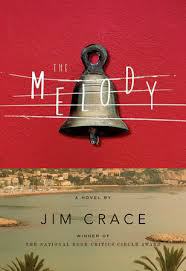Everyone kept talking about Elena Ferrante and the Neapolitan books and how they were so good and I had to read them.
I caved and read My Brilliant Friend, book one, over Christmas 2015. It was fine but I wasn’t obsessed like everyone said I would be.
I’ve just finished book three, Those Who Leave and Those Who Stay and I just want to go on record as saying, these books are so good and you really do need to read them.

Maybe it was that in the first book, frenemies (are we still allowed to use this word?) Elena and Lila are still children and it takes a while for them to grow up. Their childhood slights and troubles didn’t make as big an impact on me, but I did enjoy life in their Naples neighbourhood.
But it is essential to know Lila and Elena as children, to understand their dynamic, the competition they felt with each other, where they grew up, to appreciate how their relationship ebbs and flows through the other books.
After books two (The Story of a New Name) and three, I am stunned at how Ferrante has been able to write about the complications of female friendship. Lila, who wasn’t able to continue going to school after Grade 5, has been married to an abusive man, left to work in a factory where the working conditions were pretty miserable until someone from the neighbourhood offers her an opportunity she can’t refuse. Elena, who has continued to study throughout university, has published a novel, married a professor and moved all the way to Florence. There she finds that she’s not terribly happy despite having everything she thought she wanted.
Through all the changes in their lives, there continues to be a magnetic pull between the two women. There is no one who knows you as well as those friends from childhood, especially when you remain in each other’s lives. But those relationships become complicated by the person you want to become, the new ways you see the world, the people you meet that aren’t from the same place as you. It can become difficult to maintain the level of intimacy you had from childhood.
This is the essence of Elena Ferrante’s incredible books. They ruminate on the internal lives of women, the struggle to be seen as a separate entity from wife or mother, to have things for ourselves outside those roles, how our relationships with other women change over time. All of this against the political changes of Italy from the 1950s forward.
These books are brilliant. They continue to gather more fans, to have more people talk about them because they are wonderful. If your only exposure to these books is the whole “who is Elena Ferrante?” business, you need to get to a bookstore/library and sort your life out.
Still plenty of time until it becomes an HBO produced series.
I am desperate to read book four, The Story of the Lost Child, but I also don’t want to finish the series.
Advertisements Share this:




